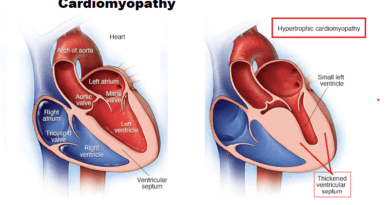Metabolic Changes Caused by HIV Infection
HIV infection is a complex health condition that impacts the immune system and can also cause various metabolic changes in the body. These changes can have significant health consequences, so it’s important for people living with HIV to understand them and work closely with their healthcare providers to manage them. In this article, we’ll explore some of the most common metabolic changes caused by HIV infection and their impact on health.
Metabolic Changes Caused by HIV Infection
HIV infection can cause various metabolic changes in the body, that have significant health consequences, including an increased risk of heart disease, diabetes, and other chronic conditions. Some of the most common changes include:
1- Lipid Metabolism
One of the most common metabolic changes caused by HIV infection is an increase in triglycerides and cholesterol in the blood. This can be due to a combination of factors, including the use of antiretroviral therapy, chronic inflammation, and changes in the way the body processes lipids. Elevated levels of triglycerides and cholesterol can increase the risk of heart disease. Therefore, people living with HIV have to check their lipid levels regularly.
2- Glucose Metabolism
HIV can also affect the way the body processes glucose, or sugar. People living with HIV may experience insulin resistance, which can lead to high blood sugar and an increased risk of type 2 diabetes. For those people, having the blood sugar monitored regularlymake them able to manage any insulin resistance or diabetes.
3- Body Composition
Body composition changes can also occur with HIV infection, including loss of muscle mass and increased fat accumulation. This is often referred to as lipodystrophy and can be a side effect of certain antiretroviral medications. This condition can have a significant impact on a person’s self-esteem and quality of life.
4- Bone Metabolism
HIV also can cause changes in bone metabolism, which increases the risk of osteoporosis and bone fractures. This condition is due to the chronic inflammation and immune activation caused by HIV infection. Using certain medications or supplements can helo those living with HIV to maintain their bone density.
SUMMARY
HIV infection can cause various metabolic changes in the body. These changes can have significant health consequences, including an increased risk of heart disease, diabetes, and osteoporosis. Alterations in lipid and glucose metabolism, changes in body composition, and changes in bone metabolism are among the common changes caused.
People living with HIV have to manage these metabolic changes and reduce their risk of complications. That can be achieved with the help of their healthcare provider. It is advisable for them to check blood lipids , glucose levels and monotor their bone health regularly.




